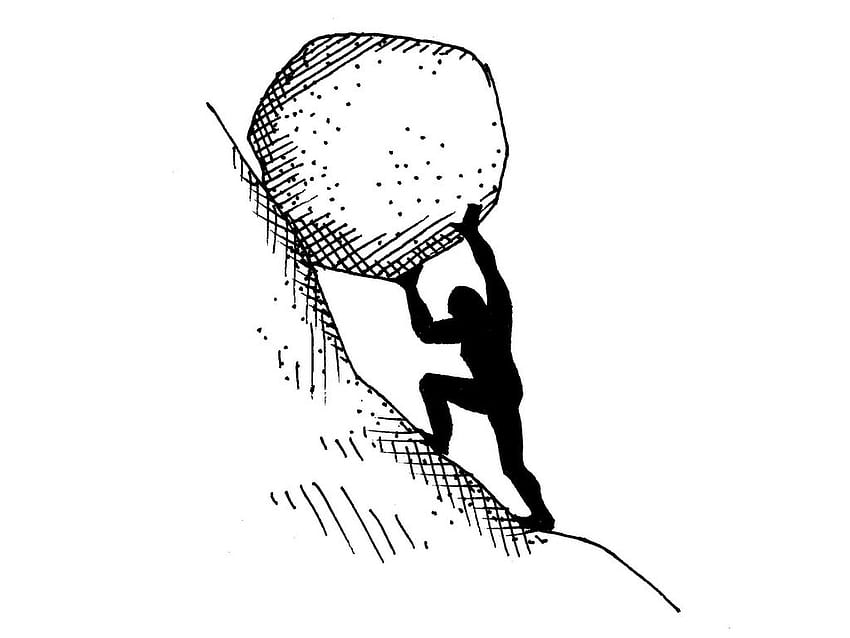Sisyphus’s Boulder
The gradual erosion of your fingertips, the steepness of the hill setting your legs ablaze with each step forward, the summit of the hill in the horizon of your vision. You push on, the ridges of your fingerprints sanded smooth, your match-like legs charred and blazing, but the apex of the hill lies just out of reach. Suddenly, the weight of your boulder feels as though it has doubled, maybe even tripled. Your fingers bend backward, the sweat on your palms makes you lose your grip, the matches snap in half, and you find that the crown of the hill is merely a stain in the sky. You expected this outcome when you first started pushing this rock. You find yourself in the same position you have time and time before again. This cruel pattern shows no urgency to lose its momentum. The repetition has morphed into a sick tradition. You are Sisyphus, the face of perpetual doom, condemned to eternal failure. Cursed by the gods to push your boulder up this hill, pushing without cause, your fruit only an illusion, never blooming, never reaping what you sow.
Fortunately, you, however, are not Sisyphus.
Unlike Sisyphus, the gods did not subject you to everlasting failure. Nevertheless, failure is not something humans can avoid. Failure itself is not what humans dread, it’s the fear of what comes after. Fear fancies itself a puppeteer, treating your life as its marionette, controlling and contorting your life with its strings of terror.
Unlike Sisyphus, your failure is essential to your success. Failure’s reputation is polluted by its laden tendency to humiliate, degrade, and dehumanize. Because of this, its ability to hone resilience, implement discipline, and subsequently nurture success is disregarded. Failing is paramount to succeeding. In Why Your Greatest Success Will Only Come after Your Worst Failure author Bo Muchoki makes the point, “Determination, drive, motivation, persistence, and hunger to succeed are not inborn traits.”
Exposing the reality of success, Muchoki stresses the importance of failing. The lack of failing would lead to weak or even non-existent versions of these traits. Failing feeds these traits, and the desire to prove yourself or your peers wrong strengthens these characteristics. Later in this article, he provides examples of idols, entrepreneurs, and authors that exemplify resilience. Quoting Steve Jobs on his climb to success after being fired and J.K Rowling on her trial and error, Muchoki alludes to how these individuals, who have grown to be synonymous with success, are experienced failures.
Success is truly subjective. Its definition altered and tailored depending on who is interpreting it. Whether money means money and fame, love and peace, or some mixture, failure is the most important step in achieving authentic and earned success.
Failure is not an obstacle, it is a tool. Fear masks itself as failure and tricks us into being afraid of failing. We must unveil fear and fail. We must take our leap of faith; if we wait until we no longer fear fear itself, we will be waiting our entire lives. Although we are unlike Sisyphus, we can adopt his unrelenting hope. Like Sisyphus, we must never give up and conquer failure.

Hi! My name is Melissa Martinez and I am a sophomore at Armijo High School. I was born in Walnut Creek, CA but moved to Suisun City just before my second...
